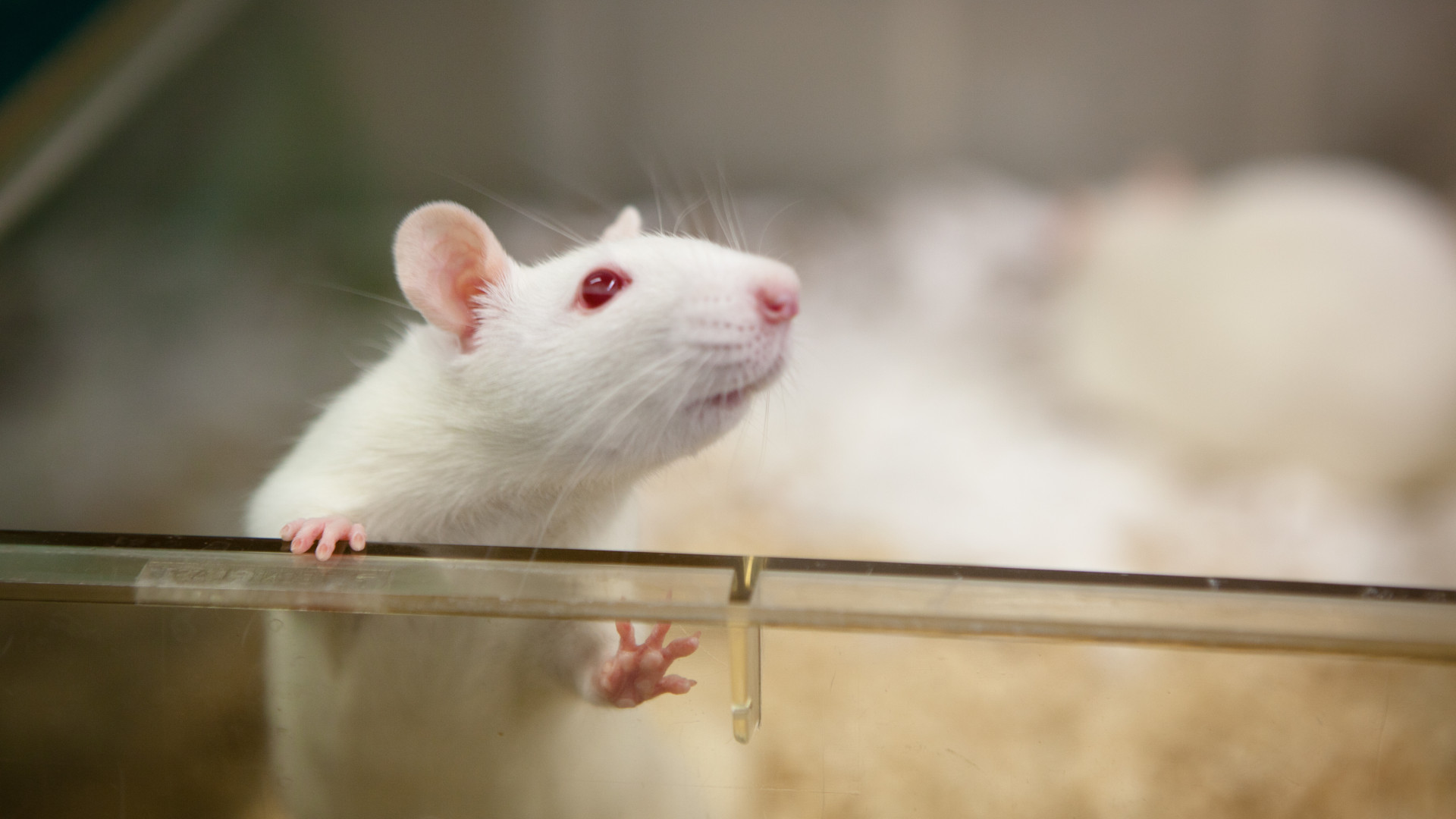New Survey: College Students Feel Coerced Into Participating in Animal Experiments Despite Objections; 83% Oppose Such Exercises
Results Arrive Amid Court Fight Over Deadly Animal Experiments at Macalester College

WASHINGTON, D.C. — Eighty-three percent of U.S. college students believe that animals should not be used in classroom teaching laboratories if the animals are killed afterward and if other methods can teach the same material without using animals, according to a new OpinionWorks survey. Among those majoring in the sciences, 90% believe animals should not be used.
The survey, which was conducted online among 1,043 U.S. undergraduate college students from Aug. 8 to 10, 2025, also posed the hypothetical scenario in which such an animal laboratory was offered as an optional experience, along with a nonanimal alternative. In that case, although most students did not want to participate, 20% stated they would do so anyway to avoid problems, and another 24% stated that they would be nervous asking for the alternative activity. The survey also found an overwhelming majority of students, 79%, expressed concern about the welfare of animals.
“The vast majority of college students don’t want to participate in deadly animal experiments in the classroom but feel subtly coerced because they are fearful of the consequences of not taking part,” says Neal Barnard, MD, president of the Physicians Committee for Responsible Medicine. “Colleges with old-fashioned animal labs put students in an awful position that many interpret as a choice between killing or flunking.”
The survey results arrive amid an ongoing lawsuit against fatal animal experiments at Macalester College in Saint Paul, Minn., where students will begin arriving for the new school year on Aug. 25.
In psychology courses at Macalester, live animals are deprived of water for prolonged periods, then placed in “Skinner boxes,” where they have to work for water. Some experiments involve drugging animals and placing them in mazes. All are killed at the conclusion of the experiments. Harvard, Yale, Stanford, Princeton, and other leading universities stopped the Macalester-style fatal experiments long ago.
The new survey found that 76% of college students do not approve of the use of live animals in psychology classes when the animals are killed afterward and when there are alternative teaching methods.
Macalester’s website says that its “animal welfare standards and ethical principles are applied at the highest possible level in any animal use or research conducted at or in association with the college” and that it follows the federal Animal Welfare Act, which incorporates ethical principles called the Three Rs—for the replacement, reduction, and refinement of animal use in research.
The lawsuit against Macalester, brought by alumnus Dr. Barnard on June 3, calls on the college to stop needlessly killing animals in psychology classes’ “show and tell” exercises, citing the college’s posted ethics commitment. The psychology department has killed thousands of animals for more than 50 years.
The college stated in its motion to dismiss, which Dr. Barnard responded to in court papers, that its own ethics statements are mere “generic phrases”—known legally as “puffery.” The college wrote, “These statements are, at most, ‘vague or highly subjective’ statements of superiority—not representations of material fact,” drawing comparisons with statements used to sell dog food or breakfast cereal.
“Given that animals’ lives are at stake, Macalester’s brazen statement that it did not really mean its ethics policy is an affront to students, donors, the faculty, and the public,” Dr. Barnard said.
The lawsuit seeks, among other actions, an order compelling Macalester “to cease its use of animal laboratories in psychology instruction and in all other areas for which nonanimal methods are available.”
Media Contact
Michael Keevican
202-527-7367
mkeevican[at]pcrm.org
Founded in 1985, the Physicians Committee for Responsible Medicine is a nonprofit organization that promotes preventive medicine, conducts clinical research, and encourages higher standards for ethics and effectiveness in education and research.







